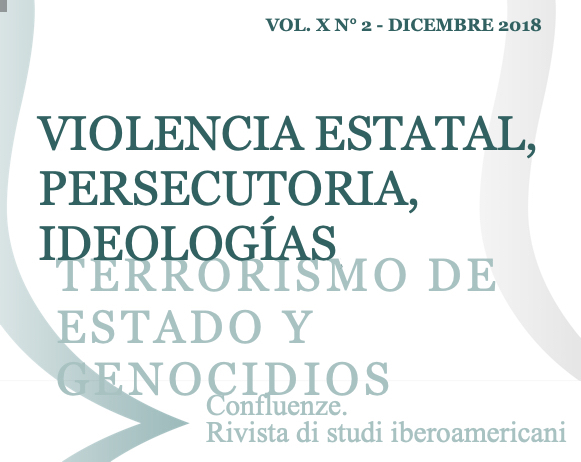Tribunais de papel. O palimpsesto do romance policial e Sempreviva
DOI:
https://doi.org/10.6092/issn.2036-0967/8887Palabras clave:
Brazilian dictatorship, Lei de Anistia, memory, detective novel, justiceResumen
The aim of this study is to analyze the way in which detective novel as a genre shapes narratives that discuss the function of law and, therefore, the existence of a(n) (im)possible justice, when it is (not) put into existence by the institutions responsible for it. The starting point of this analysis will be Antônio Callado's novel, Sempreviva, written in 1981 during the transitional period towards democracy when the Amnesty Law, institutionalizing an official amnesia, makes it difficult to access reality and to process trauma, identifying, instead of a change, the persistence of the past into the present.
Descargas
Publicado
Cómo citar
Número
Sección
Licencia
Derechos de autor 2019 Agnese Soffritti
Los derechos de autor y publicación de todos los textos de esta revista pertenecen a sus respectivos autores sin restricciones.
Esta obra está bajo una licencia de Creative Commons Reconocimiento 4.0 Internacional (código legal completo).
Véase también nuestra Open Access Policy.
Metadatos
Todos los metadatos del material publicado son de dominio público y pueden ser utilizados por cualquier persona de forma gratuita. Esto incluye las referencias.
Los metadatos -incluidas las referencias- pueden reutilizarse en cualquier medio sin autorización previa, tanto con fines lucrativos como no lucrativos. Rogamos a los usuarios que faciliten un enlace al registro de metadatos original.






